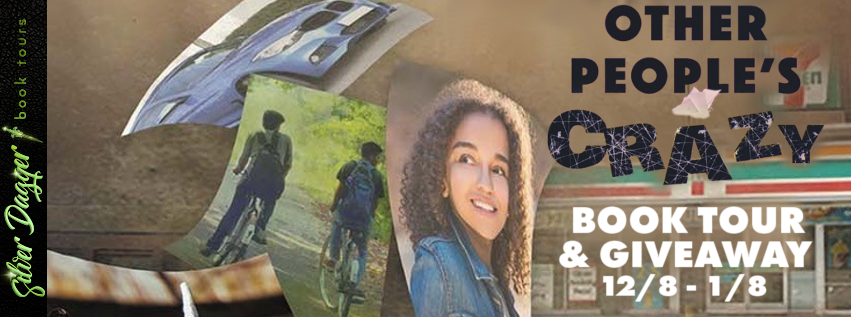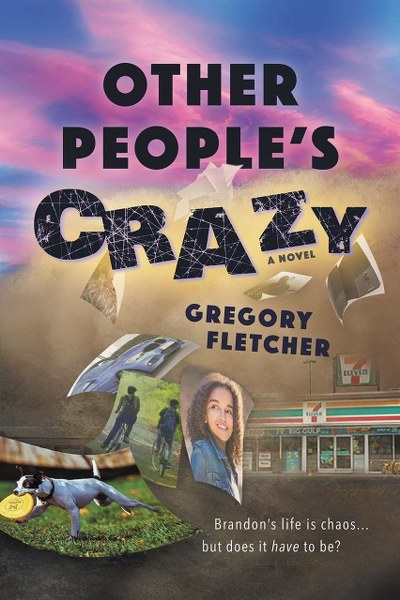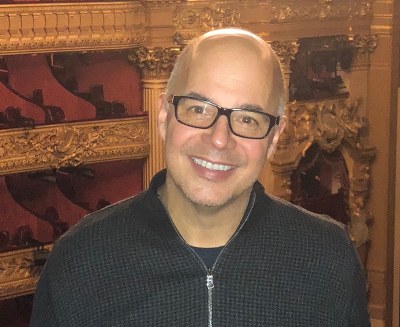When did you first know you
were a writer?
My great aunt and uncle, Matilde and Theodore Ferro, were writers
for classic radio, TV, as well as for various fiction, etc. They wrote the long
running radio serial “Lorenzo Jones and His Wife Belle” throughout the 1930s
and 40s. They wrote teleplays for live television, and, later, many classics
like “Leave it to Beaver,” “Peyton Place,” “The Patty Duke Show,” and dozens
more. When I met them as a young kid, we instantly connected. During a visit in
high school, they gave me a copy of one of their scripts from “Leave It To
Beaver.” On the plane ride home, I discovered it was missing the last couple
pages. I decided to write how I thought the script should’ve ended, and mailed
it to them. They telephoned with delight, “You’re a writer!” I moved to LA for
college, to be close to them, and we read each other’s work as if we were
peers. I will always be indebted to their support and all that they taught me.
What are some of your pet peeves?
Just a few:
·
racism,
·
sexism,
·
homophobia,
·
xenophobia,
·
a lack of compassion,
·
disinformation,
·
undervaluing investigative journalism,
·
relying on Facebook and friends’ opinions for
the news,
·
dishonesty,
·
narrow-mindedness,
·
bigotry,
·
prejudice,
·
bullies,
·
inhospitality,
·
failing to treat others like you’d want to be
treated,
·
undervaluing the arts,
·
not finding the time to read,
·
the inability to put the phone away during
social times with family and friends,
·
mindless violence,
·
religious fanatics who’ve lost the meaning of
religion.
Where were you born/grew up?
My dad lived in New York City, and my mom in Long Island. When
they were married, they decided to move to Dallas, Texas, where I was born and
raised. Lucky for me, they brought along their theatre-going habits, which
quickly became my favorite childhood activity. I even studied children’s
theater at the Dallas Theatre Center, and acted in two of their mainstage
productions. The Dallas school district also supported the arts. Every year, my
school went to the Dallas Opera, Dallas Symphony, and Music Hall for musical
theater. If that wasn’t enough, my parents supported the idea of producing
neighborhood theatre in our own living room. (Clearly, I was heavily influenced
by “The Little Rascals.”) We must’ve produced four separate productions prior
to my high school years; at which time, my amazing drama teacher, Brenda
Prothro, directed us in two to three plays a year, and produced my first
full-length play in my senior year. What an amazing time and upbringing.
What inspired you to write this book?
I was having lunch with a friend who I
hadn’t seen in a long time. Within the first 15 minutes, she got a text and
abruptly had to go. I was like WTH! But when she explained that her son was
being bullied in high school, and she was being summoned by the principal, of
course my heart went out to both of them. As she was leaving, she said, “Of
course the odd thing is—my son is the biggest in his sophomore class. And he’s
being bullied by the smallest!” Without knowing anything else about her son,
bully, or school, my mind started trying to figure out how this began, and how
it would end. And Other People’s Crazy began its first trimester.
What can we expect from you in the future?
I’m halfway through Other People’s
Drama, which is book two, following Other People’s Crazy. The second
book centers on Brandon in his junior year of high school. And I suspect there
will be a third book in the series, with Brandon in his senior year.
I’ve also completed two new YA
manuscripts, currently looking for publishing homes:
Class of Numbers takes place in
a charter high school in New York City. A sub shows up to teach a class when a
sub was never called. The students’ names are substituted for numbers that
remain the same for the entire class. Then immediately afterwards, the sub
disappears. Who was this sub, and what do the numbers mean? The students are
determined to find out.
Tom and Huck—Sitting in a Tree re-images
Tom and Huck as gay 16-year olds, living in 1850 Missouri. Looking for love,
searching to belong, the adventures are told in the comedic spirit of Mark
Twain.
Advice you would give new authors?
Try your hand at other genres. Being forced to think outside of
your comfort zone can be rewarding, beneficial, and full of teaching moments. I
started as a playwright, but when I was encouraged to write fiction, I found
that I loved storytelling in this new genre, especially YA (young adult). And
because of my background in playwriting, I had a strong advantage with
dialogue, structure, and forward development.
Try writing a ten-page play, either original or based on some of
your existing work. My craft book, Shorts and Briefs, a collection of
short plays and brief principles of playwriting, will give you clear, concise
instructions, as well as examples. The principles of playwriting apply to all
creative writing, so expect some Aha moments when examining them from a new
angle. Plus, playwriting, like screenwriting, involves a community of artists,
so then writing won’t be so isolating.
Describe your writing style.
I like relating and feeling a human beating heart on the page. I
also like the contrast between darkness and white light. One without the other
becomes too off balanced for me. I love comedy when it’s balanced with drama.
And when it comes out of action vs. jokes. Whether contemporary or historic, I
like to see characters make choices, and the forward development that follows.
By the time I get to the final page, I want to have experienced and felt the
journey of the protagonist.
How important is reading?
So much good comes from reading. Yes, read as much as you can.
Limit TV and social media, schedule time to read-read-read. Different genres,
subjects, and authors—it will be enlightening, beneficial, entertaining, and
full of teaching moments. Along with reading, also write as much as you can.
The more you write, the more you’ll discover your strengths and what works best
for you. As with any craft, the more you practice, the more you mature and
excel.
Do you believe in writer’s block?
For
me, writing is about listening. (Who or what we’re listening to may be up for
debate. I’m guessing, we’re all listening to the same source, calling it
whatever name makes us comfortable: God, love, the universe, ancestral spirits,
the dearly departed, or any other celestial or otherworldly vibes.)
When
we stop listening—unable to connect with inspiration—this is writer’s block.
None of us truly knows where creativity and connection come from. Clearly, it’s
a fragile state that no one should take for granted, misuse, or neglect.
Therefore, when you honor and respect the gift of listening, you may be able to
avoid being blocked.
Does
an athlete put on a uniform and rush to the field or court to play? Does a
musician put together an instrument and immediately begin to perform? Does a
dancer step into the proper shoes and costume and rush to the stage at
“Places?” Of course not. So why does a writer grab a pen or open a laptop and
expect the words to flow? We, too, must warm up and prepare to write.
Get
rid of distractions. Stretch the muscle groups to rid any tension. Deeply
breathe to calm the mind. Prepare and unclutter your space. Allow
yourself to listen. Allow inspiration to channel through your mind, heart, and
fingers. Let the principles you’ve learned as a craftsperson help guide and shape
your words.
If
you’re unable to hear, then ask questions aloud, and listen for the answers.
(This works well at bedtime, too, just prior to falling sleep.) Or take a walk
in the fresh air and sunshine. Meditate. Practice yoga. Pray. If you’re still blocked,
turn to art. All forms of art can allow for inspiration.
Do
whatever works best for you to rid yourself of tension, anxiety, and stress.
These are the culprits of writer’s block.
(If
interested, I offer more tips and principles for creative writing in my craft
book Shorts and Briefs, 2nd edition, by Gregory Fletcher. Thanks for
the support.)





No comments:
Post a Comment